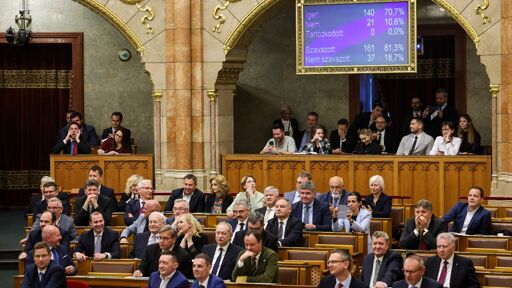Hungary’s parliament has passed an amendment to the constitution that allows the government to ban public events by LGBTQ+ communities, a decision that legal scholars and critics are calling another step toward authoritarianism.
The amendment, which required a two-thirds vote, passed along party lines with 140 votes for and 21 against.
It was proposed by the ruling Fidesz-KDNP coalition led by Prime Minister Viktor Orbán.
The amendment declares that children’s rights to moral, physical and spiritual development supersede any right other than the right to life, including the right to peacefully assemble.
The amendment codifies a law fast-tracked through parliament in March that bans public events held by LGBTQ+ communities, including the popular Pride event in Budapest that draws thousands of visitors annually.
That law also allows authorities to use facial recognition tools to identify people who attend prohibited events and can come with fines of up to 200,000 Hungarian forints (€481).



We have a similar system in the Netherlands but a meaningful difference is that you don’t only need a 2/3 majority but also a ‘confirming’ vote by the next coalition. This might not do much in a case like Hungary or Turkey where the next ruler is similar as the previous but there having to be a public vote in between can potentially greatly shift the powers and end the majority.
That sounds like quite a sensible system. Also in NL the 2/3 will almost always require a broad coalition of parties because of your proportional system.
I think the system in general works quite well, the only downside is that you only need like 0.5% of votes for a seat which means there is now 15 parties or so in the parlement which makes is very representative but from time to time also very slow. There has been cases where the decisive vote for a (2/3) was held by small parties where you could just see them in a kind of bidding war. But if I look at the international news I generally feel grateful for our system.